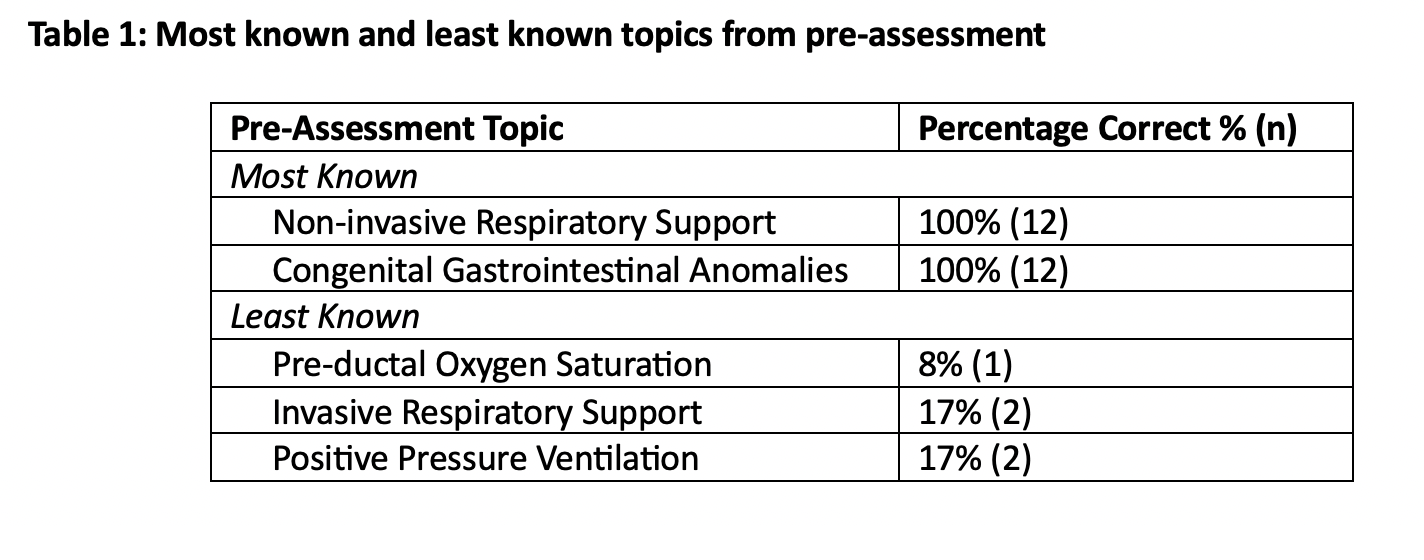Global Neonatal & Children's Health
Session: Global Neonatal & Children's Health 2
487 - Development of a Co-Designed Nationally Accredited Advanced Neonatal Nursing Curriculum in Tanzania
Friday, May 3, 2024
5:15 PM - 7:15 PM ET
Poster Number: 487
Publication Number: 487.29
Publication Number: 487.29

Shubha Setty, MD, MPH (she/her/hers)
Assistant Professor of Pediatrics
Emory University School of Medicine
Atlanta, Georgia, United States
Presenting Author(s)
Background: Tanzania has greater neonatal deaths (20 deaths per 1000 live births) compared to the goal (12 deaths per 1000 live births) described by the United Nations Sustainable Development Goals. Decreasing training variation and increasing capacity of neonatal nurses are key actions recommended by the World Health Organization to address neonatal mortality.
Objective: 1) To complete a targeted educational needs assessment and 2) co-design a neonatal nursing curriculum to improve nurses’ knowledge and skills in a Tanzanian hospital.
Design/Methods: Kern’s Six Steps was used as a framework for curriculum development by a multinational, interdisciplinary team. Tanzanian neonatal nurses identified the need for a structured curriculum. A needs assessment questionnaire evaluating fifteen clinical topics and skills was developed. Eleven Tanzanian respondents scored topics regarding importance and frequency of use in clinical nursing practice on a scale of 1 to 3, with 1 being least important/used and 3 being most important/used. The results were used to co-develop a hybrid virtual and in-person 10-month curriculum with assessments. The curriculum uses a flipped classroom model with twenty pre-recorded lectures and scheduled discussion sessions. Assessment periods include pre- and post-curriculum and six-month retainment to address all four levels of the Kirkpatrick Model of learning evaluation. The curriculum was accredited by the Tanzania Nursing and Midwifery Council to provide participants with continuous professional development points and a sustainable local platform for the material.
Results: The results of the needs assessment showed a need to prioritize physical exam, respiratory system, and resuscitation, as these were scored as most important (mean 2.8, SD 0.4). The topics found to be most used were respiratory system (mean 3, SD 0), gestational age assessment (mean 2.9, SD 0.3), and physical exam (mean 2.8, SD 0.4). Twelve participants completed the pre-curriculum assessment with answers on individual questions ranging from 8% to 100% correct (Table 1).
Conclusion(s): The needs assessment identified topics that were important and frequently used in clinical nursing practice. These data were used to develop goals and objectives to co-design an accredited neonatal nursing curriculum in Tanzania. Pre-assessment data reinforced key gaps. Next steps include full curriculum implementation, post-curriculum assessment, and follow-up evaluation monitoring changes to clinical practice over six months. Future studies will focus on generalizability and impact on clinical outcomes.

